What if the increase in the number of children diagnosed with high-functioning autism is actually a step forward in our human evolution?
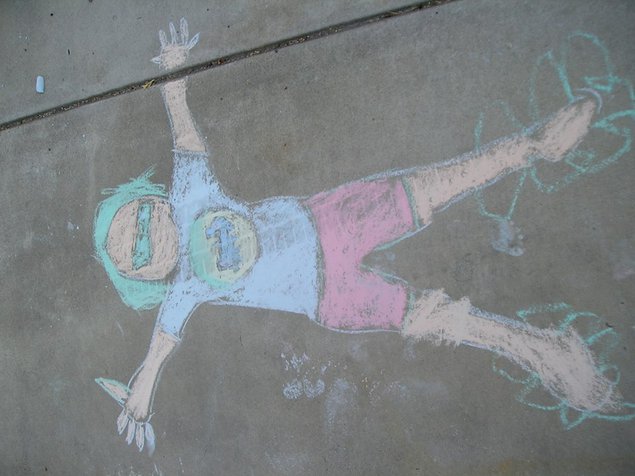
When my son was diagnosed with autism, I mourned. I felt as if his life, and mine, were over. He was 8 years old, in third grade, and he was regularly hiding under desks, running out of the classroom, and screaming when loud noises or bright lights bothered him.
Today, he is a teenager. The journey has not been easy, but I have come to understand that his autism, though difficult to manage sometimes, is also a gift. His perceptions of the world are different that the perceptions of other people. His understanding of things varies when compared to mine. He is able to do things that I could never imagine, simply because his mind works in mysterious ways.
So, I started to wonder: could autism, with its admittedly difficult social and cultural components, actually be a gift? If handled properly, if given nurturing and love rather than rejection and shame, could autism help save the world from what currently look like imminent disasters? I think it is entirely possible.
Introduction- Discusses the current understanding of autism and sets up the premise that it can be viewed as a gift rather than a curse; includes details of my personal story and my journey with my son's autism as well as my perspective as an educator.
The Science - This chapter will be a brief overview of the science (and misconceptions) surrounding autism and its diagnosis and treatment. It will also look at the genetic components of autism and current research into genetic markers and brain research.
The Social Aspect - A look at how society has traditionally responded to autism, highlighting more current schools of thought on the benefits of autism to society. It will also examine some of amazing scientific, artistic, technological, and mathematical advances made by individuals with autism.
Education - A look at how the world of education has responded to autism and students on the autism spectrum in the United States primarily, but also in other countries. This chapter will look at models that have played to the strengths of individuals with autism as well as those that have stifled growth for individuals with atypical neurology.
Bridging the Gap between Neurotypical and Non-neurotypical - This chapter will examine options and propose ideas that would allow people with autism to flourish and nurture their gifts rather than constantly be forced to conform. However, there will also be a discussion of the need for these individuals to learn to tailor their skills and talents to work within a neurotypical world.
Changing the narrative from broken to brilliant - A continuation of the previous chapter, this portion will center on the possibilities and the need for people with autism to be included in solving the problems our modern world faces. Problems with no obvious solutions (climate change, possible pandemics, water shortages) must be examined with fresh perspectives in order for humanity to solve them. Those with high-functioning autism may be perfectly suited to contribute to these solutions.
Autism is growing at a great rate among young people in the United States and around the world. My audience is educators, health care professionals, parents, and those with autism who may want to have a different perspective on it.
According to the CDC, 1 in 59 children have been identified as having autism spectrum disorder in the United States. Furthermore, the incidents of autism in the United States have risen 111 percent since the year 2000 (CDC). The CDC has a whole host of articles and various types of data regarding autism in the United States, and other countries have made some impressive strides in seeing the disorder from a different perspective.
The Bureau of Labor Statistics notes that only 20 percent of adults with autism in the US were participating in the labor force. (BLS, 2014). This means that 80 percent of adults with autism, many of whom have amazing gifts and talents, are left unable to work, or unable to find companies that will help accommodate some of their unique needs. We are wasting a huge segment of the population.
To appropriately guide students with autism through public education, more money, time, and education needs to be allotted. Teachers receive virtually no training on how to handle students with autism, and the rush to 'include' autistic students in regular education classrooms has meant that many have dropped out or failed to graduate from high school. (National Center for Educational Statistics.)
1. Email list of 2,000 subscribers
2. Facebook page, AUTISM EVOLUTION
3.Email and mail contacts to educators, private businesses that consult on autism, connecting with groups like Autism Society and Autism Speaks as well as smaller groups like Asperger Experts (a private company run by people with Asperger's Syndrome). Offers of free speaking engagements to many of these companies or educational entities.
4. Liaison with University of California SD where mental health professionals are doing cutting edge research on autism (my son was involved in several of their studies).
5. Contact and liaison with specific companies that hire individuals with autism (Microsoft, Walgreens) https://workology.com/companie...
6.Liaison with bloggers and internet social media groups that specifically discuss autism (The Mighty (https://themighty.com/), Autastic Podcast (https://www.acast.com/autastic...), and other blogs that deal with this topic (http://www.actionbehavior.com/...)
7. Visit schools and organizations that specifically deal with students with autism, focusing on the positives.
The Reason I Jump (the Inner Voice of a 13-year-old Boy with Autism) by Naoki Higashida, Random House, 2016. Translated by Cloud Atlas author David Mitchell, this is a direct look into the thought processes of a teen with autism. A compelling story that allows a peek into the autistic mind, it differs in that it doesn't discuss the positives of seeing the world this way.
Uniquely Human, A Different Way of Seeing Autism by Barry Prizant, PhD, Simon and Schuster, 2015. "A groundbreaking book on autism, by one of the world’s leading experts, who portrays autism as a unique way of being human—this is “required reading....Breathtakingly simple and profoundly positive” (Chicago Tribune) Similar in focus, this book discusses autism as a different way of seeing, but doesn't focus as much on the actual positives and strengths of what this could offer the world.
Ten Things Every Child with Autism Wishes You Knew by Ellen Notbohm, Future Horizons, 2012. A mother with first-hand experience raising a child with autism, Notbohm describes ten things that illuminate — but don't define — children with autism and their experiences. Similar in that it is a mother raising children on the spectrum, but it does not focus on harnessing the characteristics for positive outcomes, rather, how to manage them.

A prize-winning journalist, Laura Preble has extensive experience in education as well the personal experience of raising a son with high-functioning autism.
500 copies • Completed manuscript • Looking for children's, history, women's studies, gender studies, multicultural studies, politics, nature and the environment, health, and wellness.
Charlesbridge publishes high-quality books for children, with a goal of creating lifelong readers and lifelong learners. Our books encourage reading and discovery in the classroom, library, and home. We believe that books for children should offer accurate information, promote a positive worldview, and embrace a child's innate sense of wonder and fun. To this end, we continually strive to seek new voices, new visions, and new directions in children's literature.
In 2010 Charlesbridge acquired Imagine Publishing and expanded our children’s picture book list with books that included CD performances by notable personalities such as Peter Yarrow, Judy Collins, Kenny Loggins, and Neil Sedaka. Imagine Publishing also brought Charlesbridge into the adult trade publishing business with an eclectic list of nonfiction titles and cookbooks, as well as a popular list of puzzle books.
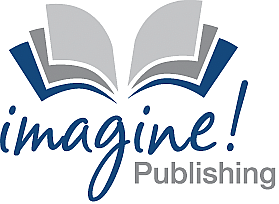
Dear Author,
You worked hard to write your manuscript, and you know that expert assistance is needed to ready it for the market. But perhaps you didn’t realize that working with a publisher is no longer necessary—especially publishers who charge fees to produce your book upfront and "share" more of your revenue whenever a book is sold.
1106 Design is an author services company that has served over 4,000 authors since 2001. We offer all the editorial and design services you’d expect from a publisher, transforming your manuscript into a polished book. But here's the difference: we help you secure print-on-demand printing and worldwide distribution in YOUR name. This means you'll earn several dollars more for every book sold instead of a meager “royalty” and never lose control of your book or your book files.
We understand that your book is not just a passion project but also a potential source of income. No two books or authors are alike. That's why we'll customize a package of services tailored to your needs at affordable prices, starting at $5,555. And here's the best part: after this one-time investment, every penny of revenue from book sales is deposited directly to your bank account, never to ours first.
If this sounds like a better way to publish your book, I invite you to browse our services, design samples, no-surprises pricing, outstanding customer reviews, and educational articles at https://1106design.com. You can download a free PDF of my book, "Publish Like the Pros: A Brief Guide to Quality Self-Publishing and an Insider's Look at a Misunderstood Industry," and request a free, no-obligation consultation.
1106 Design is rated A+ by the Better Business Bureau. We are a “Highly Recommended Expert” at IngramSpark.com and rated "Excellent" at Alli, The Alliance for Independent Authors, at SelfPublishingAdvice.org. Alli's "watchdog list" of the best and worst publishing services companies is an invaluable resource.
How can we serve you today?
Sincerely,
Michele DeFilippo, owner

250 copies • Partial manuscript.
Atmosphere Press is an independent publisher dedicated to author rights. We publish in all genres and have an exceptional editorial, design, and promotional staff. We stand for Honesty, Transparency, Professionalism, and Kindness. We want our authors and their readers to be blown away when they first hold that book in their hands. It needs to look good inside and out, and feel good to the touch. And, of course, the words need to be top-notch, and our editors are devoted to making that the case.
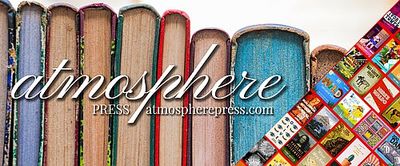
100 copies • Partial manuscript.
Bookmobile provides book printing, graphic design, and other resources to support book publishers in an ever-changing environment. Superior quality, excellent customer service, flexibility, and timely turnarounds have attracted nearly 1,000 satisfied clients to Bookmobile, including trade houses, university presses, independent publishers, museums, galleries, artists, and more. In addition, we manage eBook conversions and produce galleys, and regularly provide short-run reprints of 750 copies or fewer for major publishers such as Graywolf Press.

100 copies • Completed manuscript.
Happy Self Publishing has helped 500+ authors to get their books self-published, hit the #1 position in the Amazon bestseller charts, and also establish their author website & brand to grow their business. And the best thing is, we do all this without taking away your rights and royalties. Let's schedule a call to discuss the next steps in your book project: www.meetme.so/jyotsnaramachandran
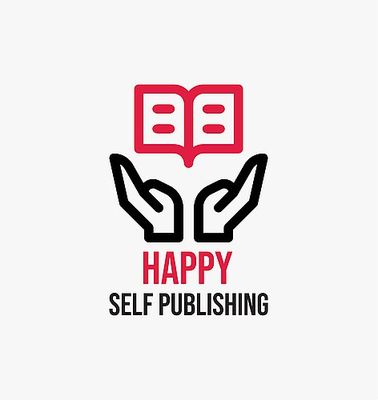
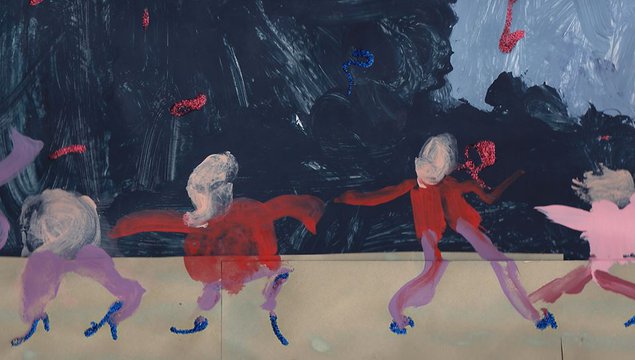
When I was first told that my son had autism, I went through the stages of grief. I denied, I raged, I bargained, I finally accepted. The acceptance didn't bring me peace, though. It was more of a resigned spiritual sigh, an acknowledgment that this was, indeed, my circus and this would be my monkey. I had to love this damn monkey, and I had to make sure it had comfortable shoes.
At this point, we've made it fifteen years. There were many days and nights where I could not see this happening because I conjectured that either he'd run away to the waffle house down the street and subsequently end up in juvenile hall for pilfering pancakes, or I'd end up in the psych ward after finally snapping and painting replicas of Van Gogh with the mold from my fridge leftovers.
It’s easy to lose sight of the teeny tiny snail-trail sized successes we've had, though. When any given day can go from sunny to hurricane weather, you tend to survive by always knowing of a safe place (mentally or physically) to hide from the storm. But in looking back honestly, I can say that my husband and I really did seek out every possible thing that could help our son, and at least some of it has worked. But that was a story in itself. I want to talk about how WE needed to change. How our own expectations limited us, and him. And about how, looking back on all of it,
When The Boy was born, he looked pretty standard: gorgeous, the most brilliant baby ever born to woman, intelligent, alert, a sure-fire award-winning baby. As I held him in my arms, I could see in him all the potential of an amazing future. He'd be able to do whatever he wanted, he'd have all the support and love possible, he'd have a loving big brother and a happy home, arts, music, enrichment, organic food, all the sage wisdom of older parents who were still young enough to play with him. I was a teacher, my husband a musician. He had it made.
He'd have tons of friends, and artistic talent (maybe even be good at sports? Given my husband and myself and our innate clutziness, that seemed to be asking for too much, but who knew? He was a baby. He could mold like play-doh into any and all things at that moment.) He’d gaze, wide-eyed with wonder, at all the cool science and literature programs and museum exhibitis I could get him to. And summer camps? Wow! He was going to enjoy the heck out of those! He’d be the most exemplary camper in the history of camps! I imagined getting complimentary notes from counselors and teachers, wondering how my son could be so incredible, wondering how I’d done it!
I love my son the way he is, make no mistake. He brings me joy on even the most turbulent day, and I can honestly say that I would rather be in his company than almost anyone else’s. But during those first few years reality was far from what I’d imagined, and I had a hard time adjusting my expectations for a while.
It turned out that my son started having problems in preschool (and further back, if I’d paid attention). We had to have meetings with the lead teacher to discuss his behaviors, and at the time I thought, “how bad can they be, really? He’s in preschool!” But he was wandering off, being disruptive by not staying focused, not following directions. I was sure this was just his indomitable spirit and (inherited) disdain for rules.
So, when it was time for kindergarten (after keeping him back a year at the firm suggestion of the preschool director), I was ready for my positive school experience. Except his kindergarten teacher wanted to teach third grade, and she didn’t really enjoy boys who couldn’t sit still on their squares, and so he ended up in the nurse’s office, alone, for sometimes hours of the day. He started to come home and tell me he was a bad kid.
As a life-long educator, I was not a teacher blamer. In this case, though, I did think that the teacher’s inability to deal with 5-year-old-boy fidgets was kind of unreasonable. We had a meeting with the principal whose response was ‘we just don’t have enough people here to really make this work for your son.’ And then he followed up with ‘and you don’t really live within our school boundaries, do you?’
When I started realizing that my son’s life was not going to be what I had imagined, my grief stemmed mostly from seeing other peoples’ kids succeeding at all kinds of things: sports, social interactions, academics, arts. I even got jealous of those ubiquitous bumper stickers declaring that someone’s kid was a honor student at whatever elementary school. I admit freely that it was not productive or healthy for me to compare my son to anyone else’s kids. Even my own niece and nephews were growing, joining clubs, singing, playing football. I seemed to be the only one in my family with a kid who didn’t quite fit whatever the standard of ‘normal’ was.
I tried for so long to deny that anything needed attention, thinking that if we were consistent and loving, it would all work out. But it didn’t. Love can’t chase away autism. It can definitely help you get through dealing with it, but it doesn’t magically make it go away.
It seemed like every school year brought more and more problems. In third grade, he started to hide under desks and run out of the room. In sixth grade, we had to change schools because there were no walls between the classrooms and he couldn’t stand the noise (neither could I.) In seventh grade, his school closed and moved to reopen as an International Basketball school and they didn’t have room for kids with ‘special needs.’ On the day we finally came back to our public school district and said, “we can’t do this alone anymore,” we finally got some help. But the day the small bus stopped in front of my house to pick him up, I smiled and waved him on, and then sat on the floor, my back to the front door, and I cried after the bus had pulled away.
I’ll skip to the conclusion: my expectations were out of whack with my reality. That was not my son’s fault. That was all me. And after quite a bit of time denying, grieving, and finally accepting, I began to adjust my way of thinking.
I always loved him. But I started to accept him. I started to understand that his brain was not wired in the same way as most other people, but that was not bad. He saw things in ways that other people did not. He could create three-dimensioanl structures on his computer that I couldn’t even begin to attempt. He moved so fast when coding games that I couldn’t even keep up visually. He had a finely honed sense of humor for puns, and he used it often. He was artistic, creative, a fantastic problem solver, tenacious in his desire to learn things he wanted to learn. How wonderful! How truly useful for a world where we need answers to questions we haven’t even posed yet!
That’s when the idea of evolution occurred to me.
What if, rather than looking at high-functioning autism as a deficit or a problem, we reframed that thinking and saw it as a strength? What if we could see the unusual approaches and talents and obsessions as opportunities instead of obstacles? How would that change our conversation about kids with high-functioning autism?
And taking that a step further: is it possible that the burgeoning numbers of these types of individuals could signal a shift in human evolution? Perhaps we will need these types of thinkers to face challenges that we don’t even know exist yet. Shouldn’t we be harnessing and enhancing those talents, nurturing them, rather than trying to remold them to fit what we think people need to be?
This is kind of a controversial idea, I realize. I proposed this idea to a former literary agent, and she was horrified. Her point was that parents of kids who have autism would be gravely offended and injured if I were to propose that this horrific condition were instead some sort of gift. She thought it felt dismissive and offensive, that it diminished the difficulty and suffering of parents and kids who arguably DO suffer quite a bit in the current system. (And again, I know of this first hand.) I see her point, but I think the bigger question here is why do they suffer? Why is the system unable to guide them and work with their strengths and try to find ways for them to compensate for their weaknesses? Instead, we throw them into general education populations knowing full well that many are not equipped to deal with the sounds, lights, voices, and stimulus inherent in classes of 30 or 40 students.
It reminds me quite a bit of the time when the term GATE (gifted and talented education) started to be used. At first, the idea of filtering out kids who were ‘gifted’ was a bit controversial. (I have my own issues with that term and the testing used to bestow that designation, but that’s for another time). Would it be fair to separate those kids out into another classroom, away from their ‘less gifted’ peers? We did it though; those kids needed more stimulating curriculum, things that moved at a faster pace, different types of teaching methods. But because they were being tracked upwards, no one really complained too much. (For those not in education, 'tracking' means moving students to common schedules because they have common needs.)
Tracking a student lower than their peers is really frowned upon but tracking them above their peers is okay. We have Advanced Placement and Honors classes in high schools, and those are segregated classes of kids who are high achievers. Why do we do this? So the class can go at an appropriate fast pace. We can no longer put students with common traits on the opposite end in tracking, though. Kids who have difficulties with academics because of learning disabilities or other issues but be “mainstreamed”, ie, included in regular education classes with all the kids who aren’t tracked into the AP and Honors world. Dooming them to differently structured and paced classes takes away their opportunities, you see. They won’t have the option of going to college, so we are dooming them. Consequently, many of them drop out of high school or give up on graduating and leave the system.
What if we were able to offer those students, many of whom have autism or other different abilities, classes that could play to their strengths and needs as we do with the kids in AP and Honors? Wouldn’t that be better? No, according to those in charge of education in many states. It would be doing them a disservice.
If we could reframe how we see those students, and reframe how we deal with them in schools, what could we unleash? What underlying talents could we uncover, buried under years of institutional academic square peg/round hole syndrome? What if we saw these students as differently abled, not DISabled?
Too expensive. Too difficult. Better to let them founder in general education classes with perhaps a special ed advocate teacher. They won’t get much out of it, but that doesn’t matter. As one teacher told me, “it doesn’t really matter if theyy pass a class, it just matters that they are included.” Schools check the box for ‘inclusiveness’ so they can show that they are offering a fair, equitable education to all students regardless of talent or challenge. But they’re not.
And students with HFA (high functioning autism) are among the trickiest to handle in this. Many are fiercely intelligent and have extraordinary gifts and talents, but when they are forced to be 'included’, they fail miserably in many cases, or barely get by. There are small glimmers of programs and even work places that are encouraging.
Accepting my own son meant something different than ‘fixing’ him. Accepting meant that I could love all the parts of him: his passion, his stubbornness, even his lawyer-like skill at arguing every single point of conversation. (“You’re arguing with me again!” Him: “No I’m not!”)
This also meant accepting that the current system of education would not easily mold itself around his needs and styles, and I knew I had to find ways to help him do that, because the world wasn’t going to change to suit him. We began approaching his condition with the idea of finding ways to help him conform in his own unique way. That may sound strange, but we knew it was necessary, at least while he was younger.
So I ask this question: if we were able to, as a society, identify and strengthen the skills of these high-functioning students rather than force them to conform to what we think education should look like, what might we find? Might we find an evolution of sorts, a new way of seeing the world, a new way of using information? It's an important question for the parents and children who live with autism, but it's also an important question for everyone else. The world is in a mess. Don't we need all hands (and brains) on deck to solve the puzzles we've set for ourselves?
Let the evolution commence.
Throughout history, some people have been identified as ‘geniuses’.
When many of these people lived, they were described as being eccentric, quirky, strange, awkward… but today, we might reasonably check to see if perhaps they also don’t fall along the autism spectrum. Why?
I think it’s because autism is not a disorder. It’s a gift.
That’s tough to hear in some ways. As the parent of a child with autism, I understand how difficult it can be to live with. How is it a gift? Suspend judgment for a second, and I’ll try to explain my idea.
My son is 15, very verbal, and has a host of difficulties with regular school and social situations, even though he is extremely personable and really loves being around people (for at least part of the day...he says he gets ‘peopled out’, and i totally relate to that.) We knew something was different with him almost immediately. He screamed when we bathed him, hating the feel of water on his skin. We learned to cover the coffee grinder to muffle the sound because it caused such a strong reaction. We only vacuumed when he was in a remote part of the house. We learned to work around it.
So, in what way can his way of being be seen as a gift?
He can solve problems in ways that others do not see. When given a challenge, especially a spatial one, he can derive solutions that I cannot even understand. He sees analogies that I don’t see and has insights that are unique to him, but right on point.
But he’s had trouble in traditional school. He doesn’t conform enough for public education and cannot so far handle the huge classes (40 per class in high school). In smaller environments, he does better, but after many years of failures in school, his anxiety is now so activated that he has real trouble actually completing any assignments for fear that they’ll be wrong or he won’t measure up.
I don’t play the ‘wish’ game. In fact, I have forbidden that word to be used in our house. Wishing is what people do when they weren’t able to get whatever outcome they wanted, but they are unwilling or feel unable to change it. I challenge that. If you do not like how things are, you MUST change things. If the outcome isn’t as you want it to be, change the narrative. We are all products of our stories, and change begins with changing that internal narrative.
I don’t ‘wish’ my son was neurotypical. I don’t ‘wish’ schools would be better trained to serve the kids who are like him. Instead, I want schools and society to see that the way he is works very well when other factors are corrected. I think a lot of his problems at this point stem from failed experiments in education. If he had started from preschool to be treated as gifted rather than problematic, how might things be different now? But still, I don’t ‘wish’ for that. I PLAN on assisting him in changing his narrative.
Autism Evolution is a concept that I had several years ago. I saw, of course, many other families struggling with systems that didn’t work for their kids, and the training wasn’t there to help the parents either, so a lot of stress ensued. Many of the parents who had kids more toward the verbal and critical thinking end of the autism spectrum talked aobut the amazing htings their kids said, did, created. They also talked about thes guilt and shame that visited them when their child got into troubl ein school, or reacted to a stimulus that someone with training would have known to avoid.
The Centers for Disease Control and Prevention (CDC) estimates that 1 in 68 children in the U.S. have autism. The prevalence is 1 in 42 for boys and 1 in 189 for girls. These rates yield a gender ratio of about five boys for every girl (CDC).
The term was coined in 1908 but in 1943 American child psychiatrist Leo Kanner, M.D., published a paper describing 11 children who were highly intelligent but displayed "a powerful desire for aloneness" and "an obsessive insistence on persistent sameness." He later named their condition "early infantile autism." (Parenting Magazine, 2014) Since that time, autism has been seen as a ‘disorder’ rather than something that might be harnessed and enhanced and strengthened.
What if we changed the narrative? What if autism wasn’t a disorder at all, but a step toward progress? How would we treat it differently, and how would schools function for these students?
And why should anyone care? Sure, if you have a child with autism, it matters to you. But it shoudl matter to everhone. Because living on a planet facing monstrous climate change and social challenges, we need people who think of answers we haven’t thought of yet. It’s a matter of survival.
The author hasn't added any updates, yet.
$20
0 readers
One copy of AUTISM EVOLUTION and mention in the book's acknowledgments.
Includes:
$35
0 readers
Two copies of the book, plus acknowledgment in the printed copy.
Includes:
$50
0 readers
Ten signed copies of the book, acknowledgments in the printed copy, plus invitation to the book launch meet and greet (travel expenses not included.)
Includes:
$100
0 readers
Ten signed copies of the book, acknowledgments, invitation to the book launch meet and greet, plus personal one-on-one meeting with the author to discuss writing, autism, or the topic of your choice. (Meeting to be arranged privately with the author. Travel expenses not included.)
Includes:
$200
0 readers
Ten copies of the signed book, acknowledgments in the printed copy, all above perks, plus a weekend stay at the author's home in San Diego, California, an amazing retreat with a pool, spa, garden grounds, quiet, and clear views of the stars in the evening. (Travel expenses not included; arrangements must be made with the author privately).
Includes: